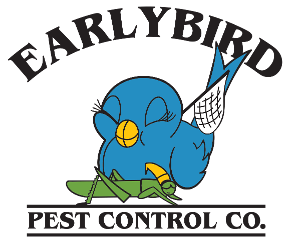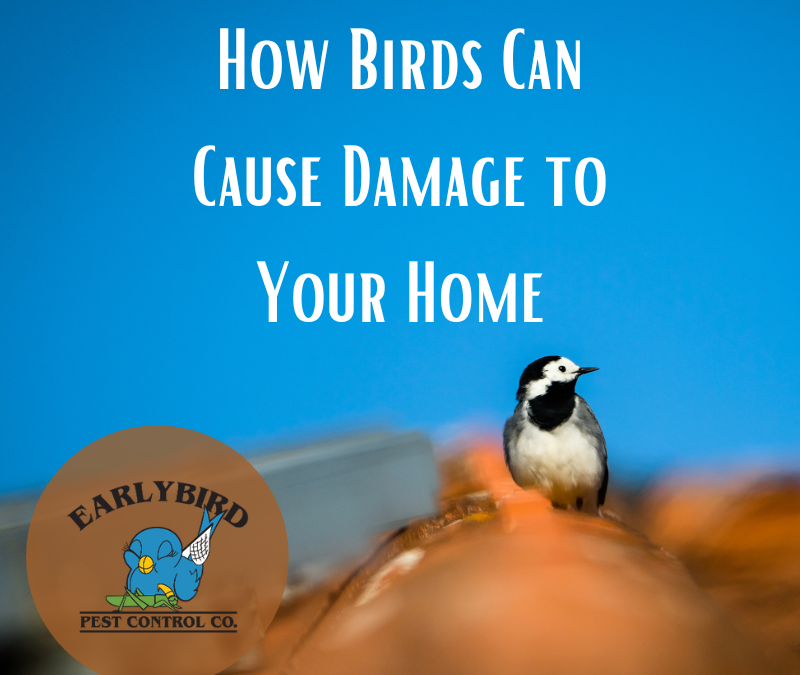Birds are creatures that attract humans but can be loud and annoying when perching or nesting in your home, often causing Damage. Why most people may leave them be, when they become too much, they can cause significant damage to your home. Birds like crows, seagulls, pigeons, starlings, and magpies can cause expensive damage as pests. So, here are a few ways birds can be destructive to your home.
Types of Destruction and Damages Caused by Birds
Damage from bird droppings
Bird droppings are unsightly and can dissolve building materials with the presence of uric acid in the droppings. These bird guano can cause damage to stone, paint, and metal holding your home. The damage caused by the dropping is a serious issue, especially in historical buildings, which depreciates their aesthetic appearance. Birds’ guano can additionally cause water leaks or damp areas. Besides, a roof’s lifespan can be shortened by the effect of droppings left by birds.
Damage to service machinery
Your home may have sophisticated service equipment like an HVAC system. Bird droppings are acidic in nature and can cause severe damage to your home. These droppings can affect machinery and other electrical equipment leading to costly maintenance. Some technicians may refuse to carry the regular maintenance on the appliance because of the smelly and health risk from the droppings.
Damage to vehicles
If you pack your car in your home, either ground level or underground parking, bird infestation can cause serious damage. For example, a bird’s acidic guano can leak from a damaged building part onto your vehicle, dissolving the paintwork.
Damage to stored goods
Birds can quickly locate hidden access to your home. Since you store food in your home, you’ll need sophisticated systems to prevent them from reaching the produce area. Bird infestation in your home can cause expensive damage, contaminate and expose your stored food. Any product stored in the home is vulnerable to these attacks. If you put valuable items in storage, then be ready to call bird control professionals to avoid the forthcoming destruction by birds.
Damage from bird nests
Birds have their nest on your home gutters, tops of downpipes, and under eaves. Their activities in these areas can lead to blocked drainage systems. The blocked drainage can lead to an overflow of water into roof spaces or down the side of your home. This damage can be inconspicuous, leading to extensive damage when conspicuous. The result may weaken your home structures leading to poor structure and expensive maintenance fees.
Blocking of ventilation systems
Birds enjoy placing their nest in secluded and sheltered places like the ventilation system, chimneys, and design units. Their activities in these areas block fumes from the heating systems and prevent them from dispersing effectively. In addition, they can lead to illness, fatalities, or extreme cases due to carbon monoxide and other gasses in the home.
Fires caused by bird nests
Most materials birds use for building their nests are highly flammable and can lead to a fire in your home. The fire may start from careless disposal of smoking materials, electrical faults, or other fire sources. Or the birds may nest close to electrical equipment like security lights or signs. These bird activities can escalate the fire, thus consuming your home.
Birds can potentially damage your house or property. A few more common examples include:
- Nesting in vents, gutters, or chimneys can clog them and prevent proper ventilation and drainage, leading to potential damage to the structure of your home.
- Bird droppings can corrode metal surfaces, including roofing and siding, and create a slipping hazard on surfaces like balconies, patios, and sidewalks.
- Birds pecking at or chewing on wood, rubber, or other materials can cause cosmetic damage to the exterior of your home.
- Birds roosting in large numbers can create a significant noise and odor problem, affecting both your quality of life and the value of your property.
To prevent bird damage to your home, it may be necessary to implement physical barriers, such as bird netting or spikes, or to modify the bird’s habitat to encourage them to nest elsewhere. However, it’s important to always use humane and non-lethal methods in accordance with local laws and regulations.
More Tips for Homeowners:
-
- 4 Signs You Have Bed Bugs
- How to Get Rid of Cockroaches
- How to Get Rid of Rats
- How Do I Know if I Have a Scorpion Infestation?
- How Do I Know if I Have a Bee or Wasp Nest in My House?
- How Do You Know if You Have Mice or Rats?
- Do I Need a Professional to Remove Tarantulas?
- 5 Ways to Keep Pests out of the Office
- How Ants Ruin your Home
- Can Pests Destroy Stucco?
- Pros and Cons of a Stucco Home
- Does Arizona Have a Cockroach Problem?


Recent Comments